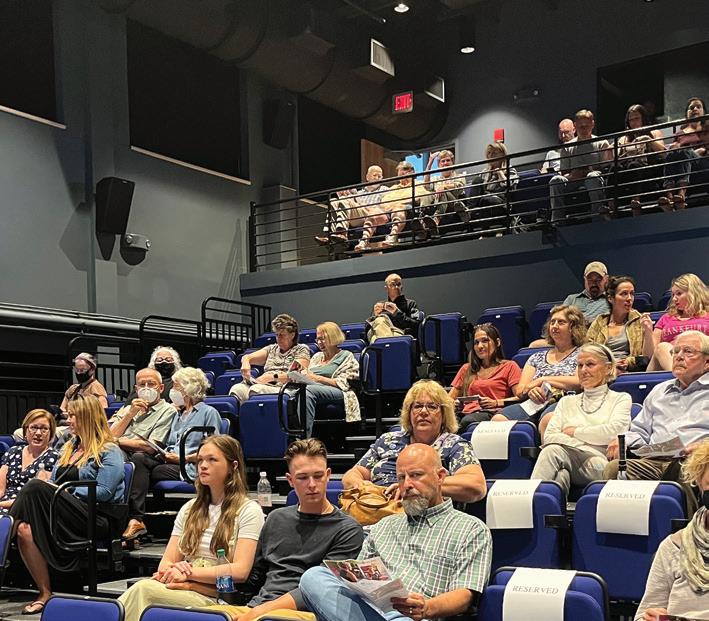
8 minute read
NHPBS CELEBRATES AN AMERICAN IDOL
MacDowell not only nurtures emerging artists but, since 1960, celebrates those who have made outstanding contributions to American culture with the awarding of the Edward MacDowell Medal. Last year, for the first time, the Medal was not awarded due to the pandemic, yet creation continues despite the global health crisis.
“As the MacDowell staff thought about our Medal Day celebration for 2021, we realized that the tradition of welcoming over 1,000 people on site would be unwise at this time, and the idea of an online event seemed less than ideal,” said Executive Director Philip Himberg. “We reached out to New Hampshire PBS to see if they might collaborate with us. NHPBS’ enthusiasm for this project was welcomed, and our partnership has been beautifully aligned. Planning together and then the actual occasion itself was an exemplary team effort, and we are forever grateful to NHPBS for their support and encouragement.”
Advertisement
And so, composer, performer and author Rosanne Cash became the 61st recipient of the prestigious Edward MacDowell Medal during a hybrid ceremony that was filmed by New Hampshire PBS and incorporated into a half-hour program.
“I never thought I would hear my name spoken in the same sentence as Aaron Copland, Toni Morrison or Thornton Wilder. I’m trying to take this in,” said Cash. “This is enormous for me, and this moment won’t come again.”
The NHPBS production is set throughout the grounds of MacDowell, where you’ll hear an intimate conversation between The New Yorker cartoonist Roz Chast and Rosanne as they talk about their processes of creation, their love/hate relationships with deadlines, anxieties about driving and Rosanne’s special tribute to John Lennon.
Exploring deeper into the secluded grounds, you’ll follow Rosanne as she visits several studios where she meets artists-in-residence and learns about their work.
And finally, during the Medal Day ceremony, writer Kurt Andersenpaints a moving tribute to the four-time Grammy Award-winner and his longtime friend, while Emmylou Harris caps off the event with a moving musical performance.
“Of all of the honors I’ve received—Grammys and everything else—this is the biggest,” said Cash. “This is a big deal for me. I am humbled.”
Rosanne Cash is the first female composer to be awarded the medal, and she’s in the esteemed company of such honorees as Leonard Bernstein, Georgia O’Keeffe, Robert Frost and Toni Morrison.
Viewers can watch ROSANNE CASH AT MACDOWELL special documentary online anytime at nhpbs.org/macdowell.
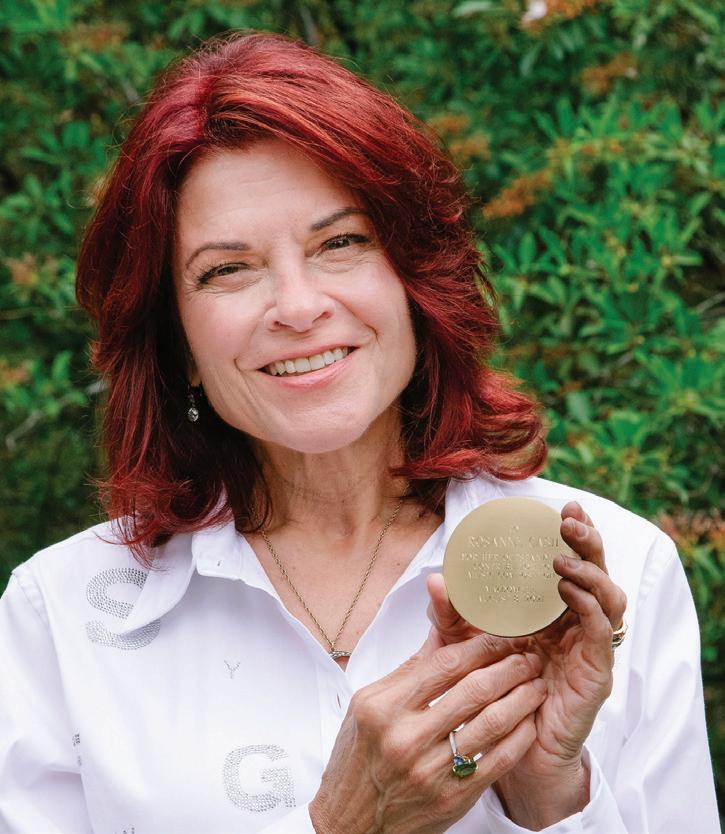
NHPBS EXPLORES ASHLAND, NEW HAMPSHIRE

New Hampshire PBS explored the town of Ashland, New Hampshire in the newest episode of its OUR HOMETOWN series. Situated along the Squam and Pemigewasset Rivers, the town, in its heyday, boasted several mills that are finding new life today. As the town continues to reinvent itself, host Rebecca Rule discovers some of the stories that make Ashland unique.
The NHPBS production team traveled to Ashland throughout the summer and fall to collect stories from local residents. OUR HOMETOWN: ASHLAND uncovers stories that include a family business specializing in covered bridges, a one-of-a-kind guitar shop owner and a farm stand that helps to define this vibrant community, among many more stories shared by the people of Ashland.
The stories generously shared for OUR HOMETOWN shed light on Ashland’s past and present and are showcased online at nhpbs.org/hometown, creating a historical archive of life in Ashland.
Produced in partnership with each community, OUR HOMETOWN engages residents and businesses in telling their stories, which are then recorded and edited into a 30-minute television program for New Hampshire PBS.
You can watch OUR HOMETOWN: ASHLAND online anytime at nhpbs.org/hometown.
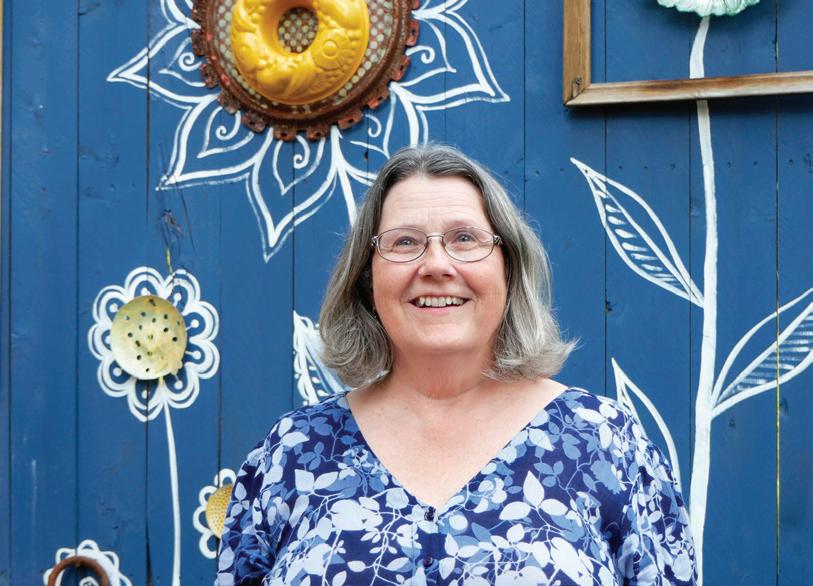
Support for THE STATE WE’RE IN is provided by Eversource, Grappone Automotive Group, Heritage Home Service and Hitchiner Manufacturing Co., Inc.
THE STATE WE’RE In is produced in partnership with the Granite State News Collaborative which is funded in part by the Solutions Journalism Network and the New Hampshire Charitable Foundation. Production assistance is provided by the students and staff of the Marlin Fitzwater Center for Communication at Franklin Pierce Unversity in Rindge, NH.
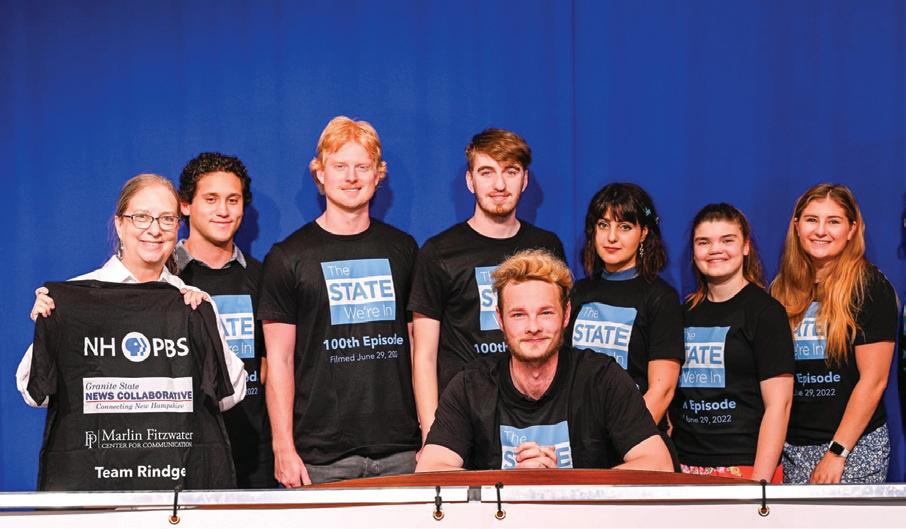
The 2020 census numbers tell a new story about who calls the Granite State home. While the state is about 90% white, a new population of Americans is gaining in numbers. Those who identify as Hispanic make up around 4% of our population. During COVID-19, many underserved populations were not receiving timely information in their native languages. New Hampshire PBS and the Granite State News Collaborative partnered with New Hampshire Public Radio to reach the Hispanic community.
THE STATE WE’RE IN reported that, on August 3, 2021, the Biden Administration reinstated the CDC’s eviction moratorium for tenants in counties that are experiencing high rates of COVID-19 cases. What legal assistance is available to New Hampshire residents? For this story, Gabriela Lozada, NHPR’s Report for America Corps member, interviewed Maria Eveleth, Fair Housing Project Director at New Hampshire Legal Aid on THE STATE WE’RE IN. Gabriela’s focus is on Latin communities with original reporting in Spanish for ¿Qué hay de Nuevo, New Hampshire?
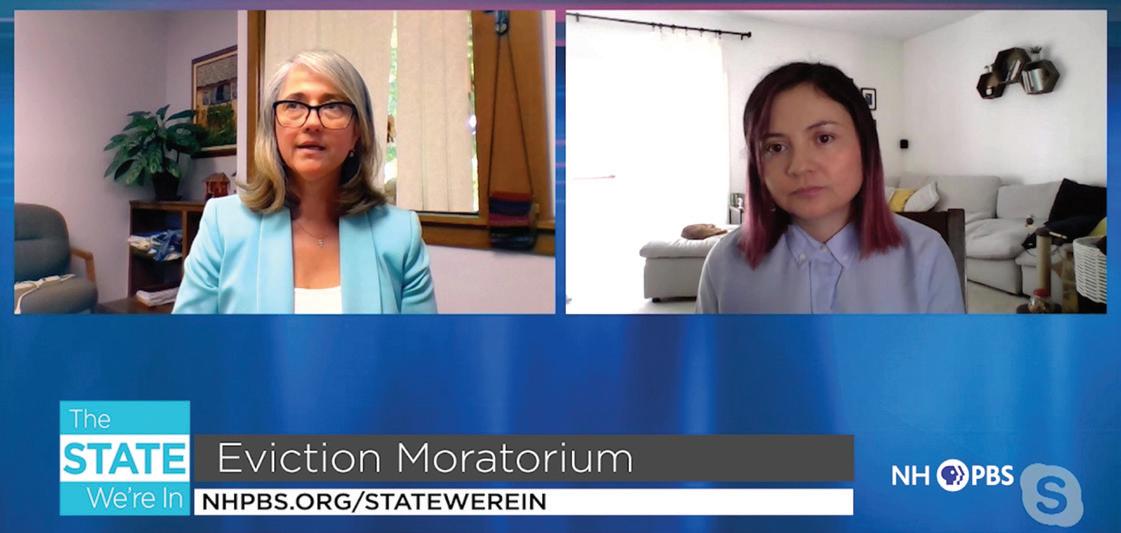
El 3 de agosto, la administración de Biden reinstauró el moratorio de desalojos de la CDC para inquilinos que viven en condados con altas tasas de casos de COVID-19. ¿Qué tipo de asistencia legal está disponible para residentes de New Hampshire?
Para este artículo, Gabriela Lozada, la representante de Report For America de NHPR, entrevistó a Maria Eveleth, la directora del proyecto de vivienda justa de New Hampshire Legal Aid en The State We´re In. Gabriela se enfoca en comunidades Latinas y realiza reportajes en español para ¿Qué hay de Nuevo, New Hampshire?
Tune in weekly to THE STATE WE’RE IN online at nhpbs.org/statewerein.
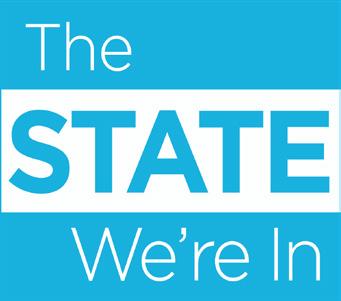
PEOPLES’ HISTORY
An idea was sparked when longtime reporter Jim Smith was digging into his family’s genealogical history. He was writing a proposal for a documentary about his family ties with the Pilgrims aboard the Mayflower and was learning that Peregrine White, the first English baby born in Plymouth Colony, was indeed his eighth great-grandfather. But the real ‘ah-ha’ moment came when Smith turned the pages of history back a chapter. He uncovered a story that many Indigenous Peoples know but remains mostly untold.
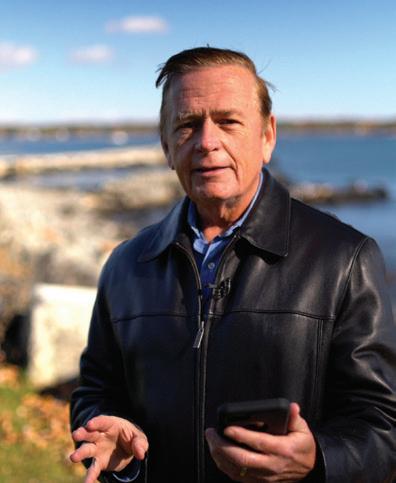
“My curiosity ignited when I was researching my family history and the Pilgrims, but then I started wondering what was happening to the Indigenous Peoples at that time,” said Smith. “I would come upon writings of a plague and a sickness that struck the Indigenous communities right before the establishment of Plymouth Colony, and I thought that this is an even more important story to tell.”
That’s when the course of the documentary narrative took a turn.
As bits of information started to surface, questions emerged. Why did the vibrant community of 1616 Patuxet, now known as Plymouth, Massachusetts, seem to all but disappear by 1620, when the Mayflower set anchor in the harbor? What happened to all the people?
Years prior to the arrival of the Pilgrims, it’s believed early European traders carried a plague ashore. It moved from north to south along the coast of what is now New England. The plague killed upwards of 90 percent of the Indigenous population.
“When you lose almost an entire race of people due to an invisible disease, you lose the underpinning of your community,” says Chief Don Stevens of Vermont’s Nulhegan Band of the Coosuk-Abenaki Nation. “It wiped out entire villages. It took away so much knowledge and so much culture.”
While the stories of the Great Dying are well known within Indigenous communities, barely a whisper of this part of our history makes it into today’s classrooms. “Some of it was intentional. History has been really white-washed and softened up,” said Mashpee Wampanoag Tribal Nation member David Weeden.
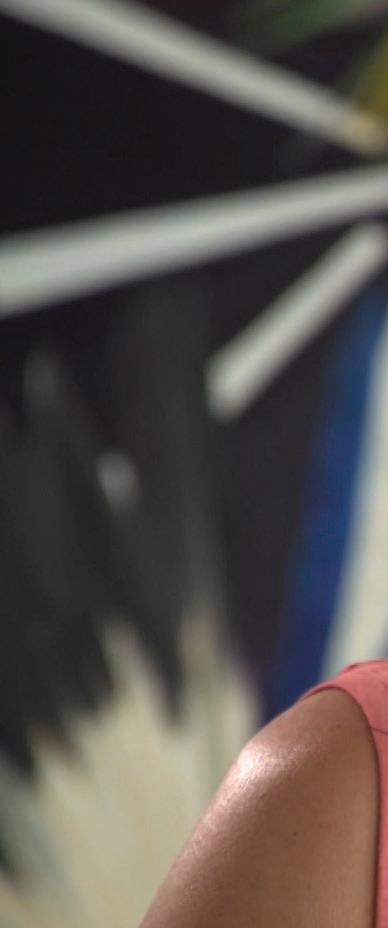
“There are echoes of the Great Dying that resonate right up to the present day,” said NHPBS producer Phil Vaughn. Amid the current COVID pandemic, both Smith and Vaughn found themselves wondering what would have happened if there was a vaccine back then, and how would history have been changed?
“I don’t think (the Pilgrims) would have been welcomed. I think they would have been likely turned away, and they would have been instructed to find somewhere else to colonize,” said Paula Peters of the Mashpee Wampanoag Tribal Nation.
“Here we are 400 years later, and we’re being confronted with this illness for which there’s no known source or cure, and treatments are just falling short. People are dying,” continued Peters. “It is very much reminiscent of what I have read about in history and that happened to our people.”
“Education has always been the foundation of all our local programs,” said Dawn DeAngelis, NHPBS Vice President and Chief Content Officer. “When we discover a little-known piece of history that could offer insight into today’s struggles, we owe it to our audience to tell that story.”
During one of the interviews with Paula Peters, Vaughn recalls that she made an important point. “Jim, I don’t hold your ancestors responsible for this, but I hold you responsible for the future,” said Peters. “She was tying in Jim’s genealogical roots and making sure that the stories of the Native Americans are told in a complete and accurate way,” said Vaughn.
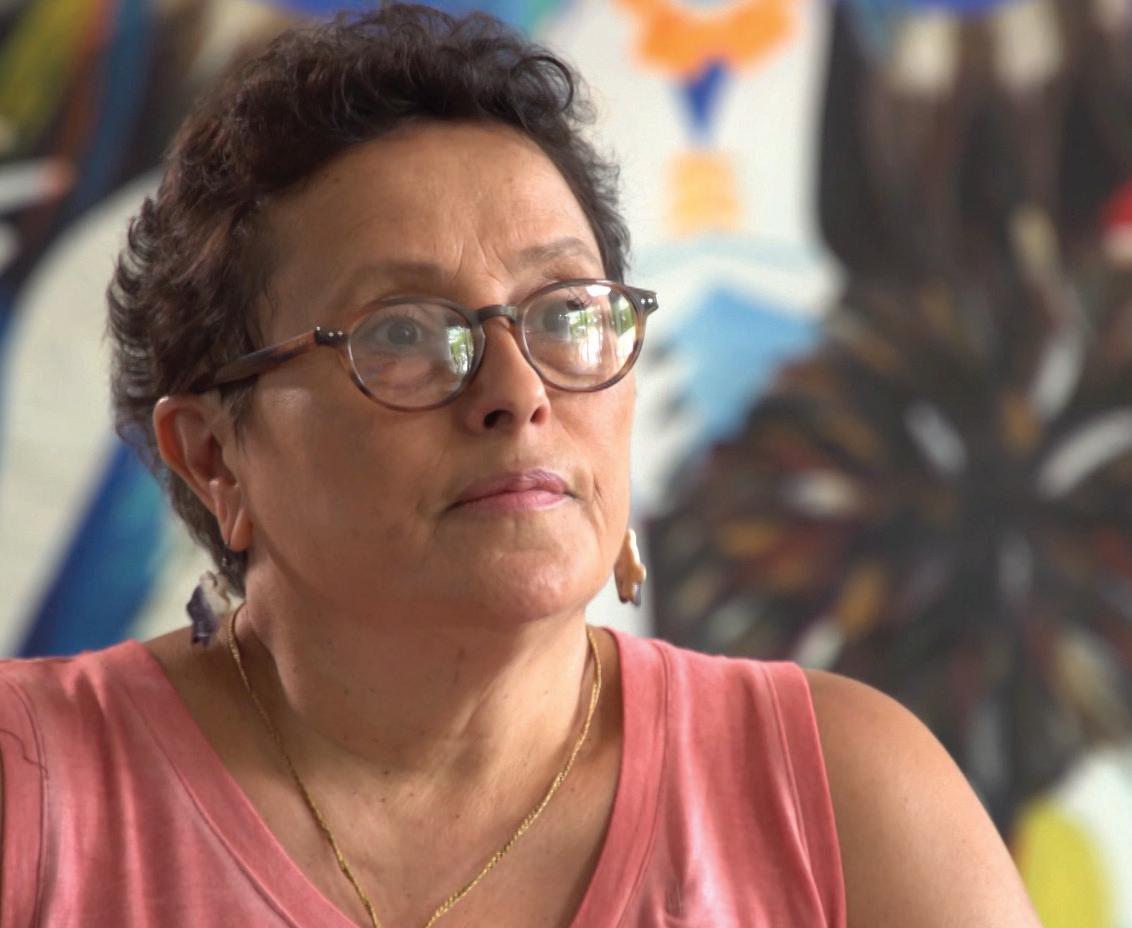
“As a Mayflower descendant, I felt compelled to learn the whole story of the Great Dying and a sense of duty to share it,” said Smith.
This is the story of New England before the colonizers arrived. It’s a new chapter of our collective history that is only the beginning of what we are learning about the past, present and future of coastal America’s Indigenous Peoples.
New Hampshire PBS hosted several online screenings and discussions where close to 600 people attended. You can watch the award-winning documentary
SURVIVING NEW ENGLAND’S GREAT DYING and access educational resources and a program discussion guide at nhpbs.org/greatdying.
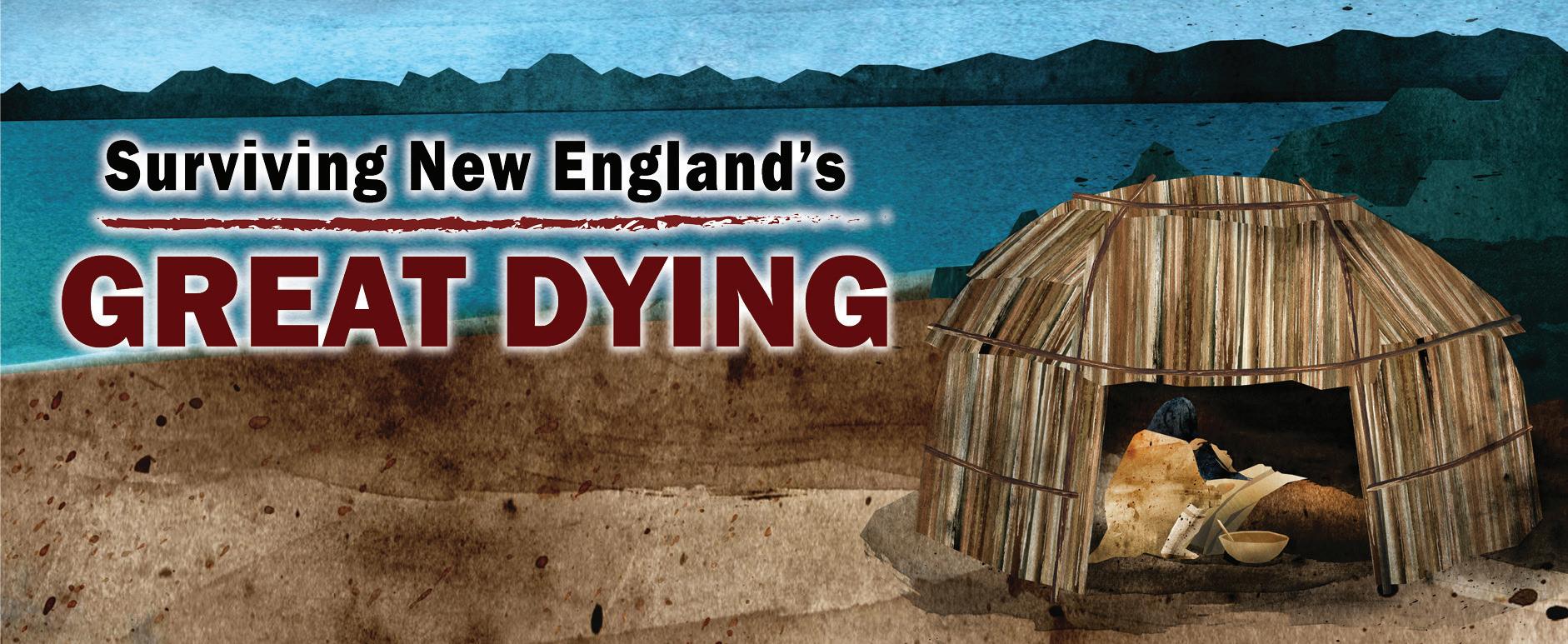
I was so impressed with the entire crew and was honored to have been chosen and filmed.
Nhpbs Brings Antiques Roadshow To Nh
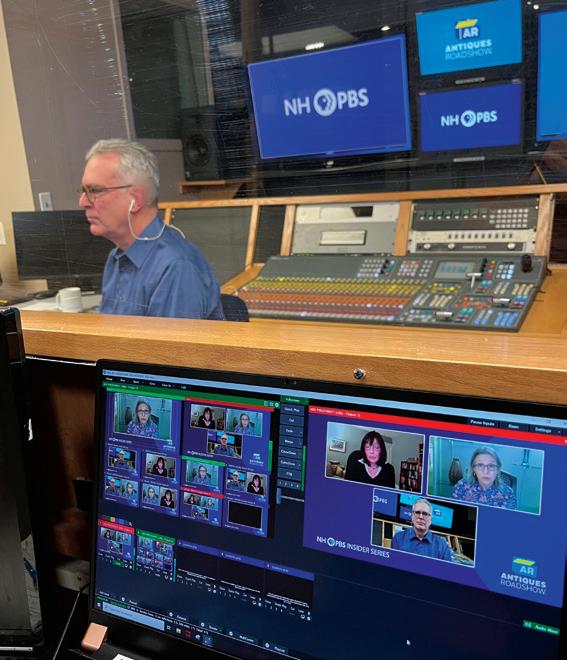
ANTIQUES ROADSHOW hit the road in August 2021 to film all-new episodes in its continuing quest to discover America’s next hidden treasure! With a focus on health and safety, a modified production process featured invitation-only filming on closed sets. The Omni Mount Washington Resort in Bretton Woods, NH was the second stop on the ANTIQUES ROADSHOW production schedule.
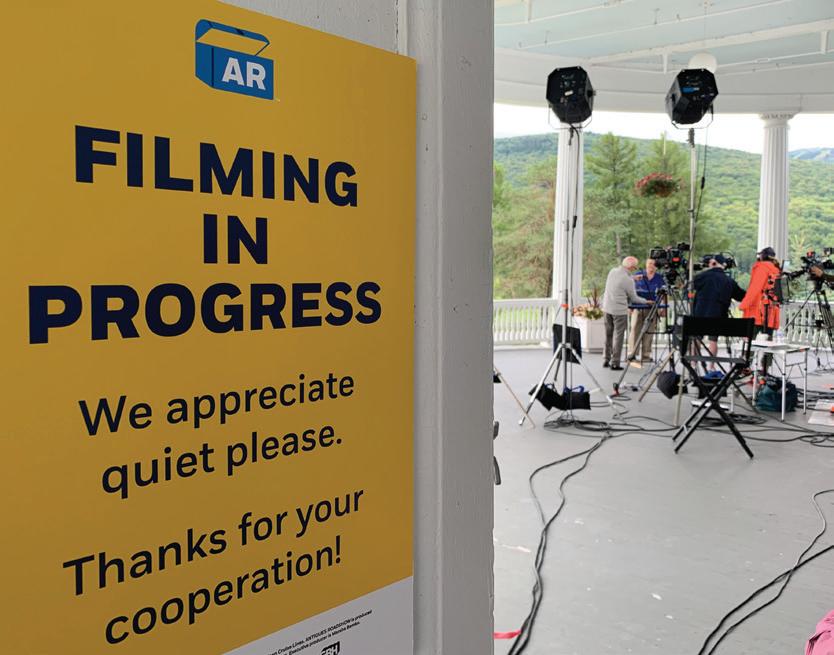
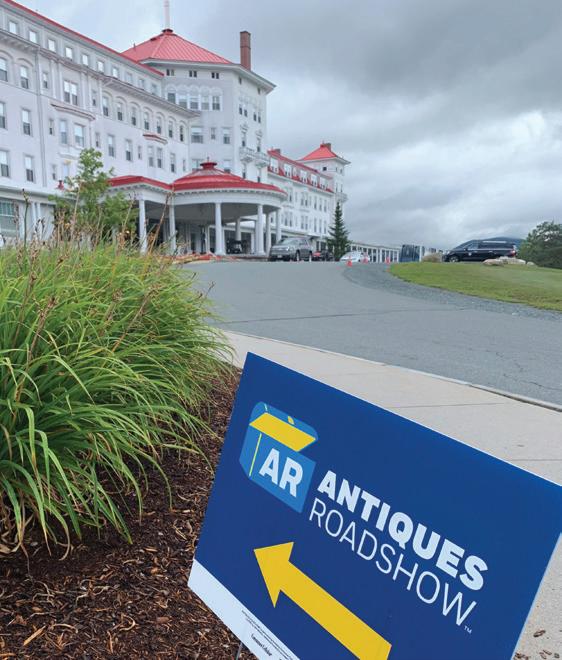
“New Hampshire PBS was thrilled that the ANTIQUES ROADSHOW crew had the Omni Mount Washington Resort as a backdrop for their production,” said Peter Frid, NHPBS President and CEO. “The Granite State is known for its antique shops and avid collectors, and Bretton Woods was the perfect place to showcase hidden treasures that are just waiting to be discovered.”
Because ANTIQUES ROADSHOW is one of the all-time most popular and award-winning PBS programs, and since the ROADSHOW crew filmed three episodes of its 26th season right here in the Granite State, NHPBS hosted a special New Hampshire PBS INSIDERS SERIES with ANTIQUES ROADSHOW executive producer Marsha Bemko and appraiser Arlie Sulka. Over 340 people registered for this online event as Bemko and Sulka revealed some of the great attic finds and family heirlooms they discovered while filming at the Omni Mount Washington Resort. You can watch the event online at nhpbs.org/events.
Nhpbs
New Hampshire PBS and Monadnock Family Services offered a free screening of HIDING IN PLAIN SIGHT: YOUTH MENTAL ILLNESS, a film presented by Ken Burns and produced by Erik Ewers and Christopher Loren Ewers. Over 75 people came out to The Showroom in Keene to view and dicuss this new public television documentary that gives voice to young people who face mental health challenges through first-person stories.
The film presents an unvarnished window into daily life with mental health challenges, from seemingly insurmountable obstacles to stories of hope and resilience. Through the experiences of these young people, the film confronts the issues of stigma, discrimination, awareness and silence, and, in doing so, helps advance a shift in the public perception of mental health issues today.
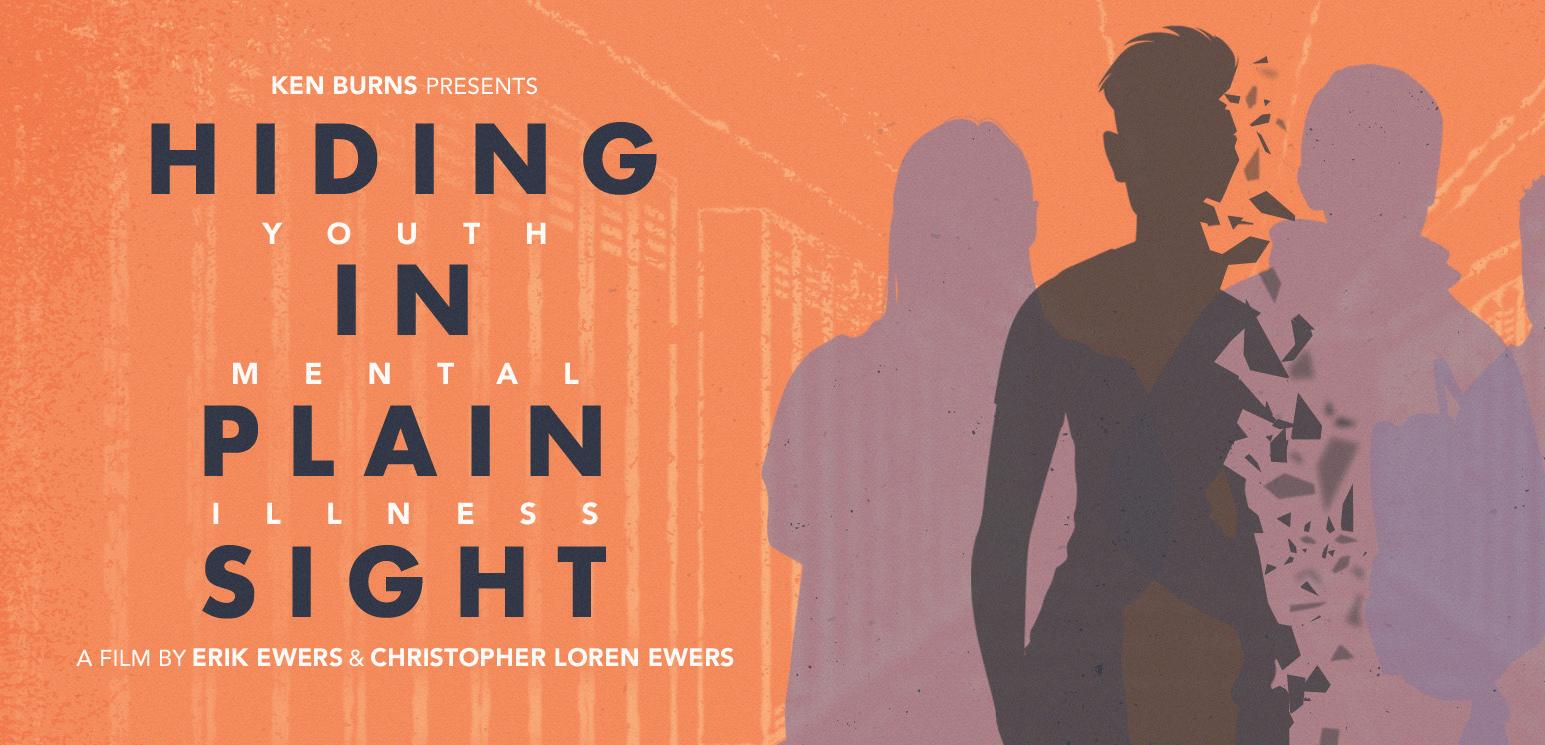
Following the documentary screening, the panel, including the film makers, a young person receiving support from Monadnock Family Services and mental health experts, explored the unprecedented mental health challenges our young people are facing and what we can do to help.
